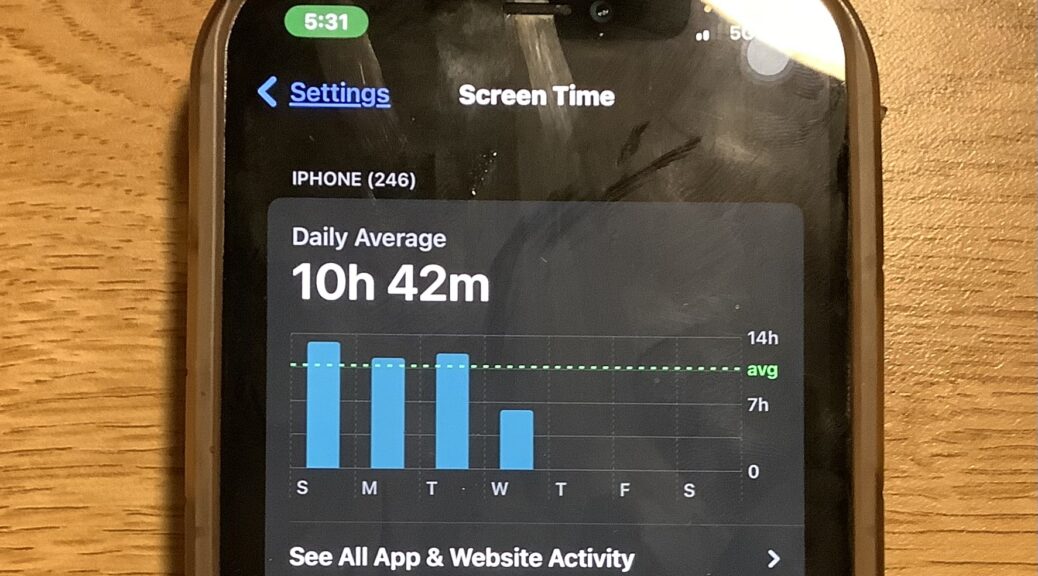From FOMO to Focus: Why College Students Needs a Screen Timeout
Traditionally, the college experience conjures images of late-night study sessions fueled by caffeinated bonding. Yet, a troubling trend has surfaced: students increasingly rely on their screens, resulting in negative impacts.
A study by Frontiers in Psychology shows a concerning reality: 61.6% of young adults, a number climbing to 68.7%, struggle with smartphone addiction and report poor sleep quality. This problem is greater than just restlessness, with the study demonstrating a direct relationship between excessive screen exposure and decreased concentration, heightened anxiety levels, and even reduced academic performance.
“Social media has taken hold of my life. I noticed for the last couple of months how I would spend hours on TikTok because of how addictive it is and I started procrastinating when it came to my schoolwork, so my grades were even slipping,” said Deandra Wright, a Kent State student. “I couldn’t sleep, and my mental health was getting worse since I was so stuck on Instagram and Snapchat for hours; it was tearing me down.”
A 2023 study from the Frontier of Public Health found that the mental well-being of college students is getting more attention due to a sharp increase in mental health issues among them. The study revealed that 52.3% of university students sought professional help for mental health problems. Among them, 46.90% showed signs of depression, while 52.80% experienced moderate-to-severe anxiety.
“If you’re constantly bombarded with different kinds of stories, they can be good and bad, right? Your body has emotional reactions to these stories. Still, because they’re not in the context in which you are currently, they can take a toll,” said Karin Coifman, Professor of Psychological Sciences at Kent State University. “Emotions are real. They like to exist within your body. They have physiological impacts that can impact your attention.”
An article from Ohio State Health and Discovery highlights how spending extended periods on screens is linked to higher rates of depression, anxiety, and other mental health issues in adults and children. Screen time before bedtime may impair your ability to initiate and maintain sleep, potentially leading to chronic sleep deprivation. Exposure to artificial light by screens at night will disrupt your sleep patterns and negatively impact your alertness and mood the next day.
“Notice how if you get enough sleep, your mood is better the next day or if you’re able to get out and be outside or be physically active,” said Coifman “Prioritizing your wellbeing and your mental health is what I see from my perspective as a shared value among college students.”
Playing online games moderately can benefit personal psychological growth and relationships. Research suggests they can reduce depression and stress while fostering happiness. Furthermore, college students’ cognitive and memory skills are enhanced through gaming.
“People who do a lot of online gaming with people they don’t know build relationships with these other players, even though they never see them ever in real life,” said Coifman. “That can be protective and good. Social media platforms can reinforce negative experiences with others. There’s all this evidence on making comparisons of yourself to others that can reinforce negative feelings about yourself.”
According to research by the U.S. Department of Education, loneliness leads to sleep problems through both attachment anxiety and mobile social media dependence.
“In the online world, you have access to every possible scenario. All of this kind of content, can reinforce, beliefs that you may have about yourself, that you’re less than, or different, or, not as good because all of this kind of online content looks like it’s real, but often it’s quite fake.”
Research published by the National Library of Medicine reported that young adults who used screens for social connection and spent time outdoors reported better mental health than those who engaged in other screen activities.
“Being stuck on your screen can make you feel so isolated. I noticed how society gets stuck in our own safe spaces when we get too comfortable; it prevents us from getting out of negative habits like being glued on a social media app in your room for hours,” said Wright “The more time we spend on our phones, that bubble grows, and we get stuck in that comfortable space. I’ve learned about the mental health scale and its importance, and I feel like many students need to learn how to break out of these habits and stop self-sabotaging.”
Research reveals the importance of promoting outdoor activities and incorporating nature-based interventions into student support programs to address the alarmingly high rates of stress and declining mental health that students in higher education institutions are experiencing. Spending time in nature can effectively relieve stress, depression, and concentration difficulties.
“I think there’s pretty good evidence that some part of what people get from being online is some kind of social interaction, right? Even if it’s with strangers or sometimes with people you know and so it’s fulfilling our needs as humans, to be connected to others,” said Coifman.

